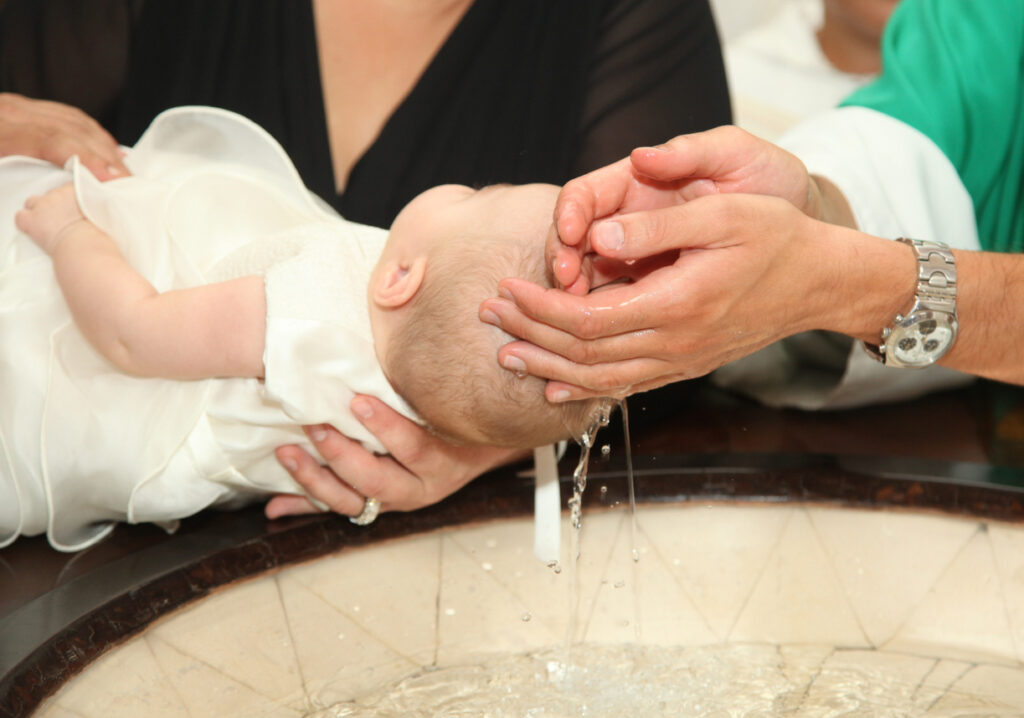Question:
I am the grandmother of two beautiful children — ages 4 and 16 months. My son, the father of these grandchildren, no longer practices his faith and is married to a non-Catholic.
When I approached our priest and asked him to baptize our grandchildren, he declined to do so — because my son no longer attends church and was not married in the Catholic Church. When I told the priest that I have the children two days each week and am willing to instruct them in the faith, he said that was not my responsibility, but their parents’.
I cannot believe that God would ever turn a child away from our faith, nor deny them the graces from the Holy Spirit in the sacrament of baptism, especially when there is an adult in their lives who is willing to raise them in the faith. Can you help me understand the Church’s position on this issue? (Port Royal)
Answer:
You are to be commended for your concern for the children’s development in the faith. One thing you haven’t told me, though, is this: Does your son want his children to be baptized? Does he even know that you have asked a priest to do so?
The Church’s Code of Canon Law provides that for an infant to be baptized licitly “the parents or at least one of them or the person who legitimately takes their place must consent” (Canon 868).
Now supposing that you are able to get your son to agree, there is still a further issue. That same canon goes on to say that “there must be a founded hope that the infant will be brought up in the Catholic religion.” Granted, you have the care of the children two days a week, but where are they on weekends, and is your son willing, as the children grow, to take them to Mass?
Have a quiet conversation with your son. Tell him of your deep desire that the children be baptized and raised as Catholics and of your willingness to assist with that. If he does not agree, then I think you are best off entrusting the children, with prayer, to the Lord. God, after all, created them out of love and cares about their spiritual welfare as much as you do and even more.
By the way, the fact that your son was not married in the Cbhurch does not restrict his right to have his children baptized.
Question:
My husband feels that, for the safety of our family, we should not attend Mass right now at our home parish. This is due to the fact that many of our parishioners are receiving the Eucharist on their tongue.
My husband is firm in his belief that reception in the hand is safer for all and that we should abstain from Mass and Communion while we have the dispensation to do so.
I very much want to go back right now to regular attendance at our parish, but I have followed my husband’s lead. I cry while watching Mass on television, but anytime we discuss returning to church right now, an argument always erupts. (The longer we stay away from Mass, the less I like my husband!)
If I go by myself to Mass and receive Communion, would that be considered a sin? (Miami)
Answer:
Communion in the hand is safer. But some Catholics feel that receiving on the tongue is more reverent, and the U.S. Conference of Catholic Bishops has recommended that people should maintain the right to that option.
What we are doing in the two parishes that I serve is this: We ask those who prefer to receive on the tongue to wait until others have taken Communion before coming forward. That way, the priest can sanitize his hands once more — and again before each person who receives on the tongue.
To answer your question: I understand and admire your deep desire to receive Jesus physically in the Eucharist. An act of “spiritual communion” can never match the experience of physical reception.
It would not be a sin for you to go to Mass by yourself and receive, but for the sake of family harmony I’m not sure that this would be the wisest course.
If you feel that you have done everything that you can to convince your husband how much you miss the Eucharist and feel the need for its strength, and if he still feels that for the safety of your family you are best off refraining from Mass attendance while you have the dispensation, then perhaps it would be best for you to make that sacrifice.
Question:
What is the proper way to dispose of the medals, rosaries, small crucifixes, etc., that many Catholic organizations mail out unsolicited? (Atlanta)
Answer:
Perhaps surprisingly, Church law on disposing of blessed articles of devotion is not very specific. Canon 1171 of the Church’s Code of Canon Law says simply that “sacred objects, which are designated for divine worship by dedication or blessing, are to be treated reverently.” Traditionally, when no longer usable or wanted, they are buried or burnt.
But the articles to which you refer — which arrive unsolicited — have presumably not been blessed at all. Therefore, you are free to dispose of them as you wish.

